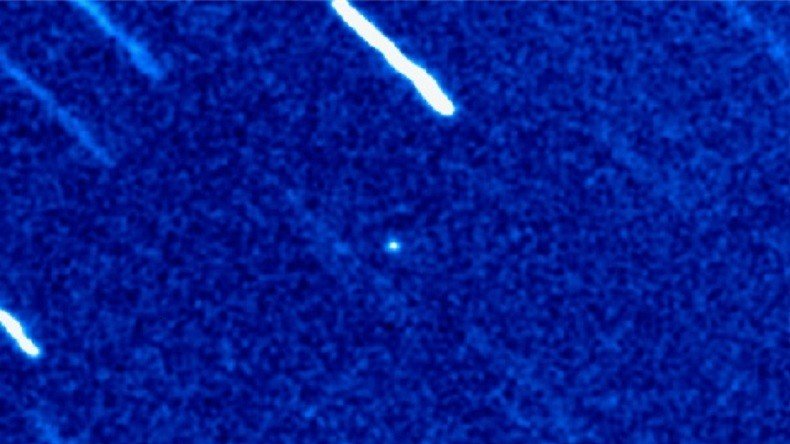First sighting of ‘alien’ comet from beyond our solar system caught on camera

In a first for the whole of mankind, stunning images have been released of what is believed to be the first “alien” comet humans have ever seen in our solar system.
An international team of researchers, led by scientists from Queen’s University Belfast, are using powerful telescopes to study the chemical make-up of the small rocky object, which was first identified through a telescope in Hawaii last week.
Professor Alan Fitzsimmons, from the School of Mathematics and Physics at Queen’s, described the discovery as sending a “shiver down your spine.” Commenting on the project, he said: "By Wednesday this week it became almost certain this object was alien to our solar system.
“We immediately started studying it that night with the William Herschel Telescope in the Canary Islands, then on Thursday night with the Very Large Telescope in Chile," he added.
The first bits of data on the fast-moving object, catchily named A/2017 U1, show it is already on its way back out into the stars after flying close the sun last month.
It is also believed it has been drifting through the galaxy for millions or even billions of years, before entering our solar system by chance. It’s thought it was thrown out of another star system during a planet’s formation.
READ MORE: Sun explosions & space hurricanes: The silent threat to global communications systems
Meabh Hyland, a PhD student from the Astrophysics Research Center at Queen's, said: “It's wonderful and exciting to see this object passing through our planetary system.”
It is hoped more is discovered about the properties and nature of the object as scientists examine it over the next couple of weeks.













